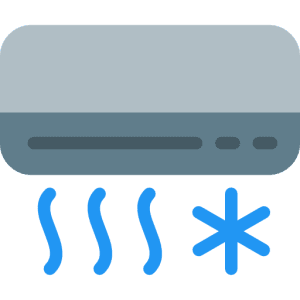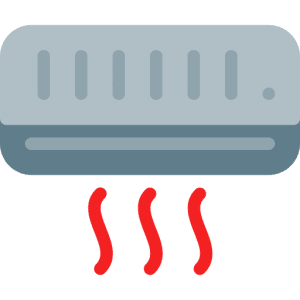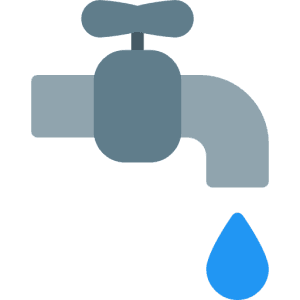How Often Should You Change the Air Filter in Your House?
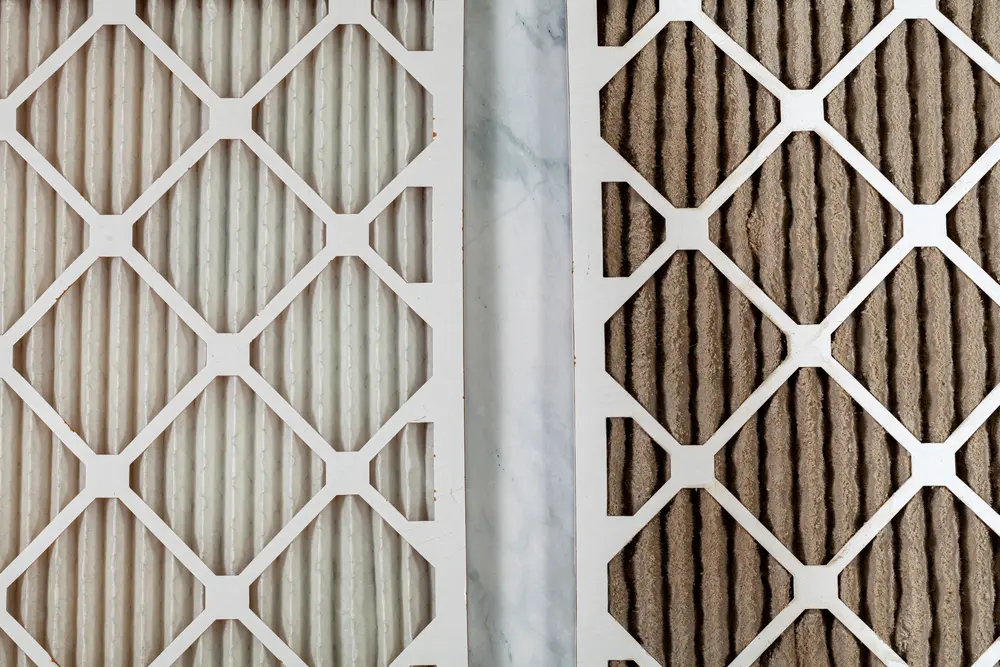
A reliable HVAC system means you can sit back and enjoy efficient heating and cooling at any time of the year. Enjoying the comfort that comes with your HVAC system is easy, but taking care of it is a significant responsibility.
Part of HVAC maintenance involves regularly replacing your air filters to prevent clogs. But if you can’t remember the last time you replaced your air filters, then this blog is for you. Continue reading to learn why you should make it a habit of replacing them.
How Air Filters Protect Your HVAC System
Typically made from spun fiberglass or pleated paper, these filters are inserted into specific areas of your HVAC system, such as the return duct.
When placed, the filter blocks airborne pollutants, dust, allergens, and other debris from entering your indoor air. With clean filters, your warm or cool air stays clean and breathable, enhancing the comfort and health of your home.
Air filters are rated with a MERV (Minimum Efficiency Reporting Value), which indicates the types and sizes of pollutants they can effectively capture.
What is MERV Rating?
MERV stands for ‘Minimum Efficiency Reporting Value.’ This rating indicates how effectively the filter traps airborne contaminants while allowing air to flow through efficiently. The higher the value, the more effectively the filter can keep your air clean.
Typically, HVAC systems designed for homes or businesses have filters with a MERV value of 16 or lower, while those with values of 17-20 are used in areas that require constant clean air, such as surgical rooms.
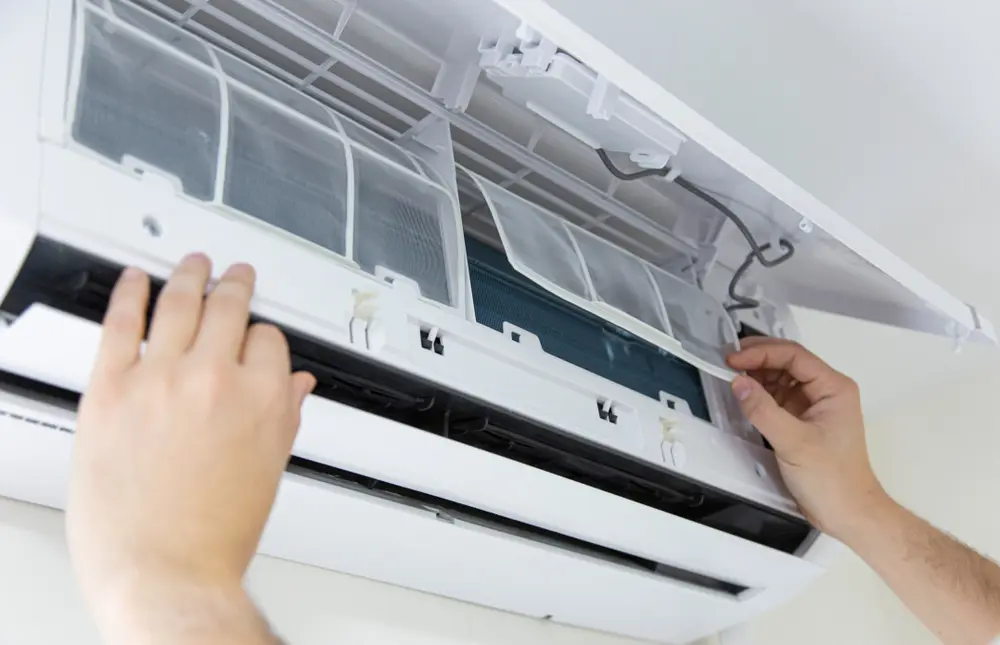
Why Replacing Your HVAC Filter Matters
A routine filter replacement does more for your home than a simple clean-up job. Without replacing your filter, you can run into problems with:
- Energy Efficiency: Clogged air filters block air circulation, forcing the AC, furnace, or other system to work harder to achieve the set temperature.
- Comfort: If air filters are too dirty, your heating and cooling systems will struggle to move air efficiently, making it harder for your home to reach an ideal temperature.
- System Reliability: Blocked airflow results in your HVAC working harder and harder to pump out heating and cooling.
Air Filter Lifespans by Type and Quality
The lifespan of an air filter can vary significantly, ranging from 30 days to nearly a year of filtration. Why is this? It all comes down to the type of filter your system uses and the quality of its design.
The three common types of air filters include:
- Fiberglass Filters: Among the various types, fiberglass filters are a popular choice due to their more affordable cost. Designed with 1” of material, these filters are only used for basic filtration needs and need replacement every 30 days or so.
- Polyester/Pleated Filters: These filters offer higher effectiveness in trapping airborne contaminants than the fiberglass design, primarily due to their larger surface area. Available in various widths ranging from 1” to 4”, these filters require replacement every three to 12 months.
- Washable Air Filters: While less common and more expensive, washable filters allow you to clean off the accumulated debris and reinsert them into your system, rather than needing to replace them. With effective, routine cleaning, these filters provide quality, eco-friendly filtration for years.
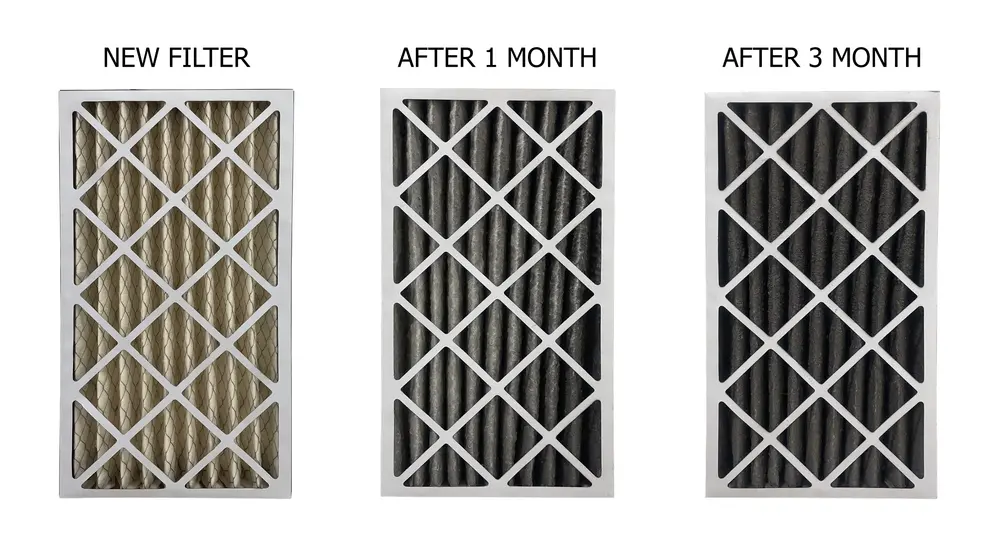
Factors That Affect How Often to Change Your Air Filter
It is recommended to change your non-washable air filters every 90 days (or approximately three months). This is a general estimate, as the frequency of replacing the filters can be affected heavily by certain factors such as:
- HVAC Usage: The more frequently your HVAC system is used, the more debris your air filters block and accumulate. If you use your HVAC system frequently throughout the year, your filter will require more frequent replacements, underscoring the importance of regular maintenance.
- Filter Type: As explained above, certain filter types, such as fiberglass, require more frequent replacement (every 30 days); pleated filters can last longer.
- Pets: As much as we love our furry friends, they can shed—a lot. Fur that travels through the air can quickly clog your filters, typically requiring a replacement every 60 days. However, you should replace your filters every 20 to 45 days if someone in your home has respiratory issues.
- Climate: If you live in a dry or dusty environment, the increase in airborne debris can quickly clog your filters, resulting in the need for replacements much sooner than expected.
- Vacant Properties: This refers to properties, such as vacation homes or cottages, that are not used year-round. With fewer people using your HVAC system, it sees less use, and in turn, your filters require replacement less frequently, typically every 9 to 12 months.
Don’t Wait—Stay Ahead with Regular Air Filter Replacement
Whether it’s getting through a scorching Charleston summer or staying cozy during a cold snap, replacing your HVAC filters helps keep your air clean and your system running at its best.
Keep your home comfortable with a company that prioritizes your needs above all else. At LimRic, each job we take on is done under our pledge, “Call Today, Comfortable Tonight!” Contact our team today or schedule your maintenance service online!










